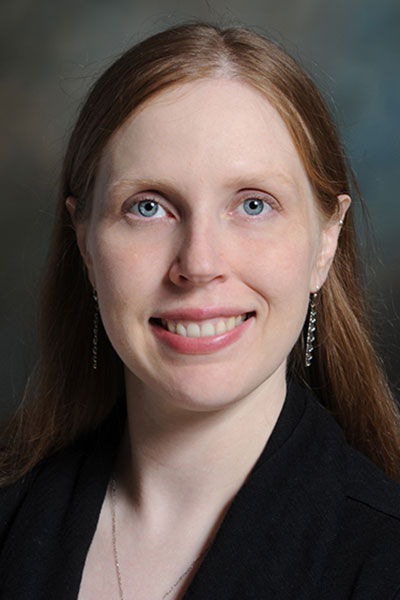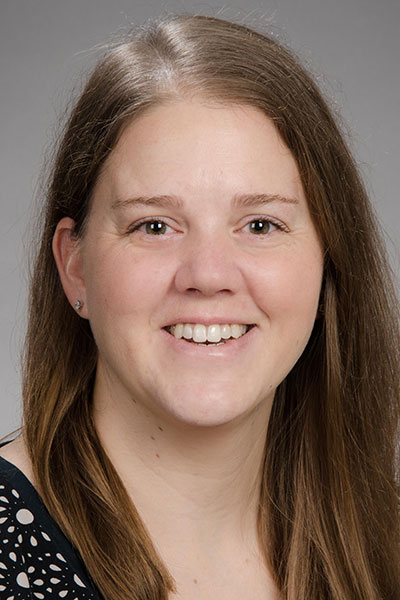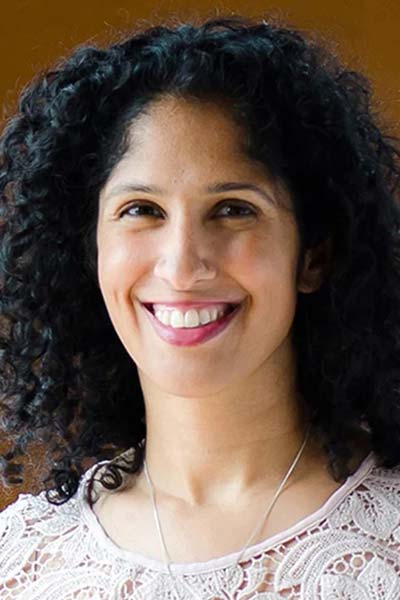The annual Clinical Year in Review will continue on Monday, May 22, with the second of four sessions highlighting the most impactful papers across pulmonary, critical care, and sleep medicine. Experts in lung cancer, palliative care, COVID-19, and critical care will discuss recent publications on these topics in Clinical Year in Review 2 from 9–10:30 a.m. ET in Hall E (Level 2) of the Walter E. Washington Convention Center.
The implementation and outcomes of lung cancer screening—and the ideal treatment for early-stage lung cancers—have been at the forefront of thoracic oncology papers in the past year.

“Unfortunately, the literature supports that there continue to be many issues with the implementation of lung cancer screening that may impact the benefits of these programs,” said Anne Catherine Melzer, MD, MS, ATSF. “There continue to be disparities in who is being screened, poor adherence to recommended follow-up, and overall low screening rates that are preventing lung cancer screening from reaching its full potential.”
Dr. Melzer, assistant professor at the University of Minnesota Medical School and the Minneapolis VA Healthcare System, will review recent papers on lung cancer, including high-impact articles about the treatment of resectable lung cancers—the most common stages detected through screening.
“Pulmonologists frequently collaborate with surgeons and oncologists to create care pathways for lung cancer patients. Several articles this year highlight the role of sub-lobar resections for stage 1A patients, as well as the potentially expanded role for adjuvant therapy with PDL1 inhibitors for resectable patients with non-small cell lung cancer,” she explained. “These developments give hope for even better lung cancer outcomes.”

Ann L. Jennerich, MD, MS, ATSF, assistant professor of medicine, University of Washington, will review recent papers on new developments in palliative care.
“There has been significant focus on the role of primary palliative care and the notion that all clinicians caring for patients with serious illness should understand and be capable of implementing the basic tenets of palliative care,” she said. “Accompanying this focus has been a growing interest in developing an approach to the involvement of specialty palliative care clinicians, which acknowledges both how important specialists can be in the care of seriously ill patients and their family members, and how limited their workforce may be in some environments.”
Among the more surprising findings from the past year that Dr. Jennerich will discuss are the results of a paper by a team at Duke University that challenged the concept that clinical triggers are a useful tool for identifying palliative care needs among the family members of critically ill patients.
“The potential impact of these results on clinical practice would be a shift away from focusing primarily on pre-hospital function, disease states, and organ dysfunction to estimate palliative care needs and a move toward an approach that directly assesses palliative care needs as a more patient- and family-centered way to target palliative care interventions, both from a clinical and research perspective,” she said.

Sarah Jolley, MD, MSc, assistant professor of pulmonary sciences and critical care, University of Colorado Anschutz Medical Campus, will discuss COVID-19, including papers on novel treatment of the disease, the long-term burden and post-acute sequelae of COVID, and whether vaccination is protective against long COVID.
“It’s an area where there is evolving information every day as we learn more about long COVID and how it is managed,” said Clinical Year in Review Co-Chair Rupal Shah, MD, MS, a pulmonologist and co-director of the Interstitial Lung Disease Program at the University of California, San Francisco.
Tiffanie K. Jones, MD, MPH, MSc, University of Pennsylvania, instructor in medicine, will discuss the latest papers on critical care.
This session and the International Conference are supported by an independent medical educational grant from Merck & Co and AstraZeneca LP. All CME sessions have been planned and implemented in accordance with the Accreditation Criteria of the Accreditation Council for Continuing Medical Education (ACCME®) and are free of the control of ineligible companies (formerly commercial interests).
REGISTER FOR ATS 2024
Register today for the ATS 2024 International Conference! Don’t miss this opportunity to take part in the in-person conference, May 17-22 in San Diego. Join your colleagues to learn about the latest developments in pulmonary, critical care, and sleep medicine.
Not an ATS member? Join today and save up to $540.
